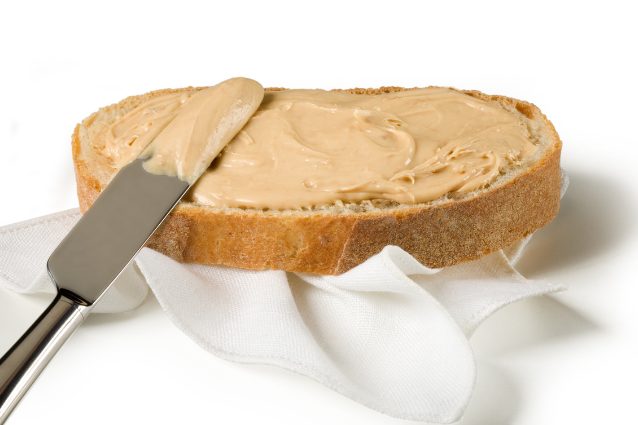Here’s Why You Should Never Store Peanut Butter in The Refrigerator
Refrigerating peanut butter can ruin its texture, making it hard to spread and dulling its flavor. Cold temperatures cause the oils to solidify and separate, creating a less enjoyable experience. Store it, instead, in a cool, dark place with a tightly sealed lid for the best taste and texture.

Peanut butter is a beloved staple in many households, a versatile spread that can be used in a multitude of ways, from a simple PB&J sandwich to an ingredient in decadent desserts. However, there's a common misconception that storing peanut butter in the refrigerator is the best way to keep it fresh. In reality, refrigerating peanut butter can do more harm than good. In this guide, we'll explore why you should avoid refrigerating peanut butter and provide tips on the best way to store this creamy delight.
The Texture Tussle
One of the primary reasons to keep peanut butter out of the fridge is texture. Peanut butter is meant to be smooth, spreadable, and ready to glide effortlessly onto bread. When refrigerated, it becomes hard and challenging to spread, almost like trying to spread a brick on your toast. This can turn the simple joy of making a peanut butter sandwich into a frustrating experience. Who wants to wrestle with their food first thing in the morning? Not me, and certainly not your toast.

Flavor Fiasco
Cold temperatures can dull the rich, nutty flavor of peanut butter. When peanut butter is stored at room temperature, its oils remain fluid, allowing the full depth of flavor to come through with every bite. Refrigeration, on the other hand, can cause the oils to solidify, muting the flavor and making your peanut butter experience less enjoyable. If you've ever tasted cold peanut butter and wondered why it seemed lackluster, the fridge is to blame.
The Separation Situation
Natural peanut butter, which contains only peanuts and perhaps a bit of salt, has a tendency to separate, with the oil rising to the top. Refrigeration slows this process, but it doesn't stop it entirely. The cold can actually make it more difficult to stir the separated oil back into the butter. Instead of a smooth blend, you might end up with clumps and chunks. For a truly harmonious peanut butter experience, room temperature storage is the way to go.

How to Store Peanut Butter Perfectly
Contrary to what some might think, peanut butter doesn't spoil quickly. Its high oil content and low moisture make it resistant to bacterial growth. Commercially processed peanut butter can last for months in your pantry without any issues. Even natural peanut butter, with its simpler ingredient list, remains fresh for a considerable time. Refrigeration is unnecessary and can make your peanut butter less enjoyable without significantly extending its shelf life.
So, if the fridge is out, what's the best way to store peanut butter? The ideal storage method is simple: keep it in a cool, dark place, like your pantry or a kitchen cabinet. Make sure the lid is tightly sealed to prevent the peanut butter from drying out or absorbing any unwanted odors. If you notice the oil starting to separate, give it a good stir and enjoy. And remember, a happy jar of peanut butter is one that’s comfortably lounging in your pantry, not shivering in the fridge.
;Resize,width=767;)

;Resize,width=712;)

